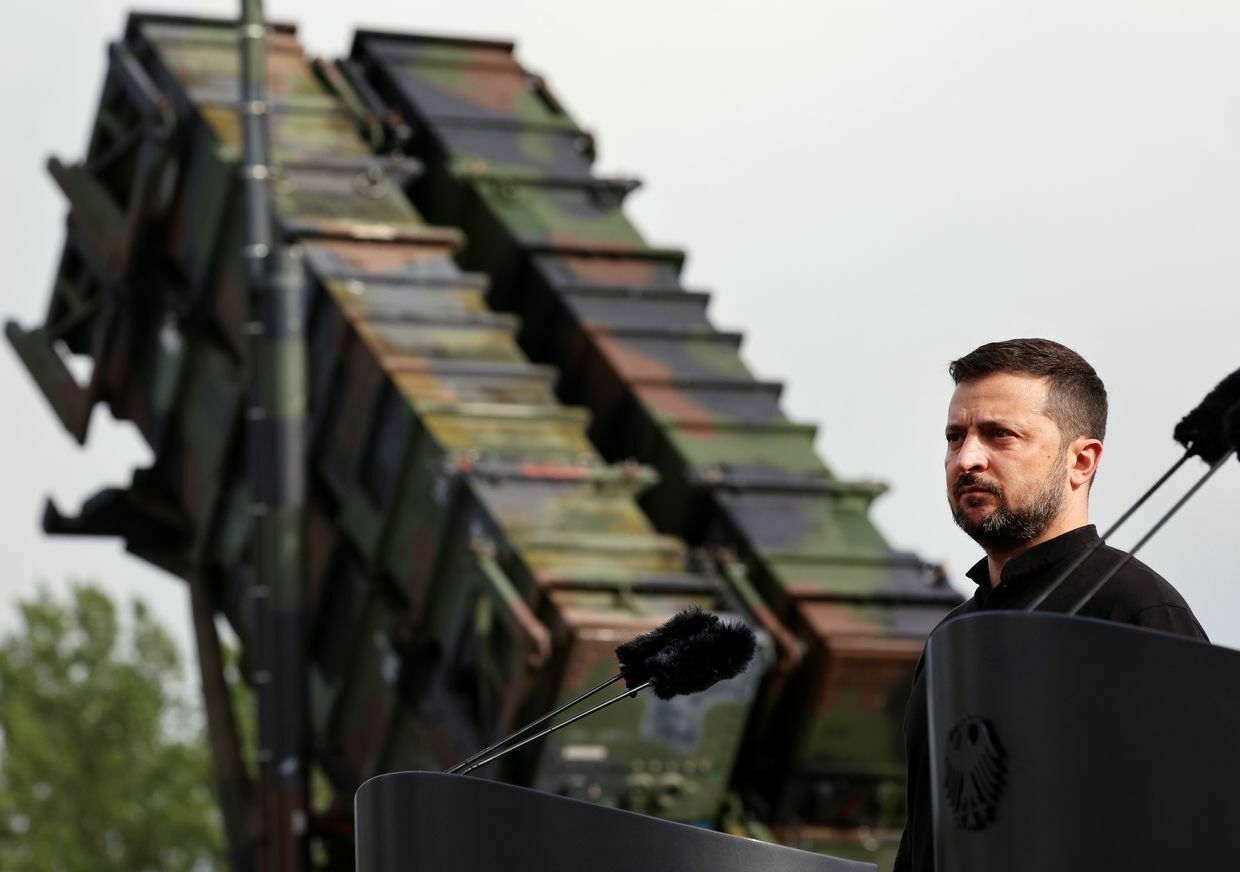
Key developments on July 2:
- As Russia ramps up missile attacks, US halts promised air defense shipments to Ukraine
- North Korea to send up to 30,000 more troops to aid Russia’s war against Ukraine, CNN reports
- Ukraine denies another Russian claim of Dnipropetrovsk Oblast breakthrough, says small incursion repelled
- Russia’s Kupol military plant reportedly halts operations after Ukrainian drone strike
- Russia killed at least 273 Ukrainian POWs during full-scale war, prosecutors say
The U.S. Defense Department (DOD) has halted shipments of some air defense missiles and other weapons previously promised to Kyiv out of concerns over the size of U.S. stockpiles, Politico reported on July 1, citing sources familiar with the matter.
The suspension comes as Ukraine faces a shortage of air defense munitions along with increasingly intense and deadly Russian bombardments. In June 2025, Russia launched 5,337 Shahed-type drones at Ukraine, shattering its previous monthly record.
Pentagon policy chief Elbridge Colby made the decision to pause the aid deliveries after conducting a review of U.S. munitions stocks, three sources told Politico. Colby was reportedly concerned about dwindling levels of artillery rounds, air defense missiles, and precision munitions.
Among the items being held back from Ukraine are Patriot air defense missiles, precision artillery rounds, Hellfire missiles, drones, and other missiles that Ukraine launches from F-16 fighter jets.
Colby made the decision in June, amid a surge in Russian mass aerial attacks against Ukraine. The White House later confirmed the pause.
The Pentagon’s decision “was made to put America’s interests first following a DOD review of our nation’s military support and assistance to other countries across the globe,” White House Deputy Press Secretary Anna Kelly said in a statement issued after Politico published the story.
“The strength of the United States Armed Forces remains unquestioned — just ask Iran,” she said.
Since his inauguration in January, U.S. President Donald Trump has not approved any additional military aid packages for Ukraine. Defense Secretary Pete Hegseth also announced recently that the U.S. will reduce the total aid it sends to Ukraine in its upcoming defense budget.
In his evening address on July 2, President Volodymyr Zelensky said Ukrainian and U.S. officials are working through the aid issue at a “working level,” including discussions on critical air defense support.
Ukraine’s Defense Ministry said it has not received any formal notification of delays or cancellations but has requested urgent consultations with U.S. defense officials.
The Foreign Ministry also summoned U.S. Charge d’Affaires John Ginkel, warning that “any hesitation” in military support would encourage further Russian aggression.
The Kremlin welcomed the decision, with spokesperson Dmitry Peskov saying, “The fewer weapons that are supplied to Ukraine, the closer the end of the (war)."
NATO Secretary General Mark Rutte expressed understanding of Washington’s desire to safeguard its stockpiles but said, “Ukraine cannot do without all the support it can get."
 The Kyiv IndependentKollen Post
The Kyiv IndependentKollen Post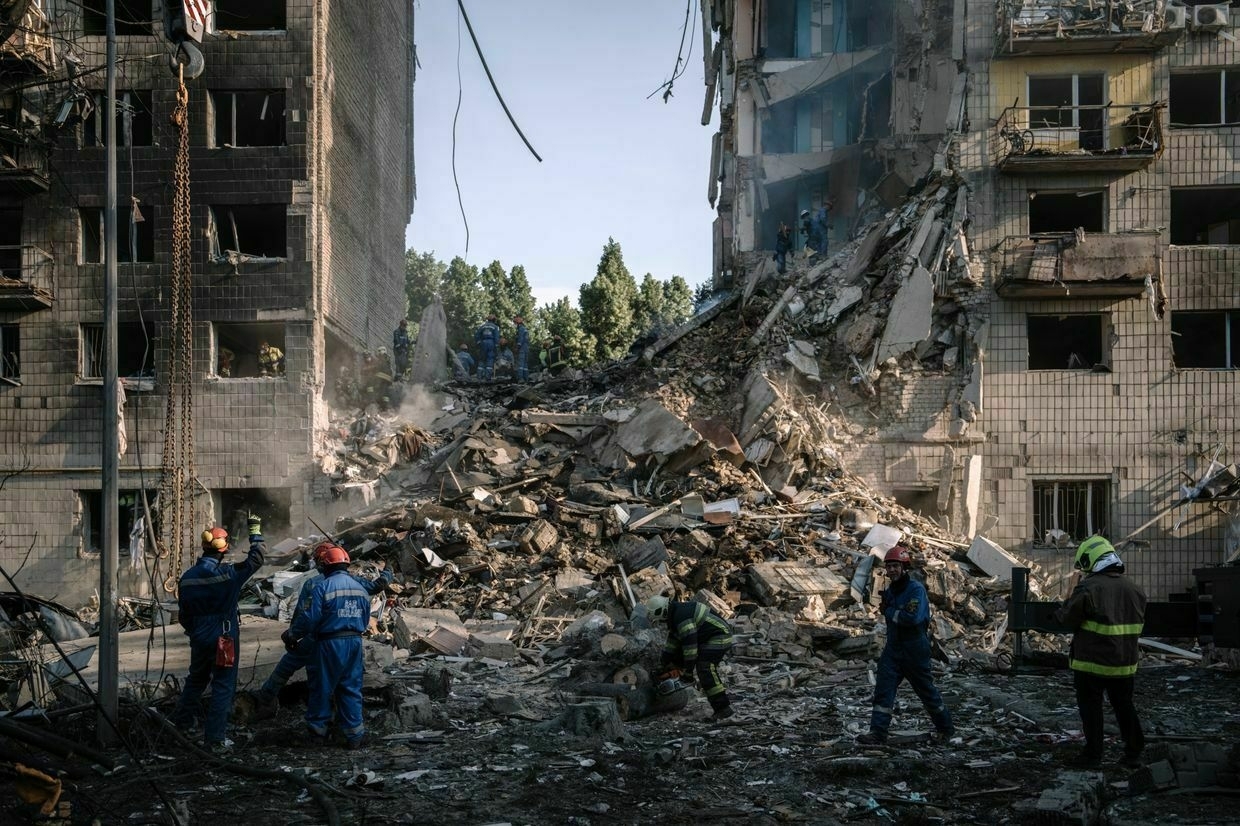
North Korea to send up to 30,000 more troops to aid Russia’s war against Ukraine, CNN reports
North Korea is preparing to set an additional 25,000-30,000 soldiers to join Russian forces fighting against Ukraine, almost three times as many as were dispatched last year, CNN reported on July 2, citing undisclosed Ukrainian officials.
The fresh units may arrive in the coming months and are likely to be engaged in combat in Russian-occupied Ukrainian territories, including during “large-scale offensive operations,” according to a Ukrainian military intelligence (HUR) assessment reviewed by CNN.
The news underscores North Korea’s growing involvement in the Russia-Ukraine war and the deepening military ties between Pyongyang and Moscow.
North Korea initially dispatched around 11,000 soldiers to Russia in the fall of 2024 to help fend off a Ukrainian incursion into Russia’s Kursk Oblast. According to various estimates, North Korean soldiers suffered between 4,000 and 6,000 casualties during this deployment.
Ukraine’s HUR also noted signs that Russian military aircraft are being refitted to transport North Korean troops from their homeland across Russia’s Siberia, CNN reported. Satellite imagery detected a ship involved in last year’s deployment at a Russian port and a cargo aircraft at North Korea’s Sunan airport, according to the outlet.
Estimates reported by CNN exceed those of South Korea’s intelligence, which expects Pyongyang to send an additional 15,000 soldiers to Russia as early as July or August.
Following his visit to Pyongyang in June, Russian Security Council Secretary Sergei Shoigu also announced that North Korea would send 1,000 sappers and 5,000 military engineers to Russia’s Kursk Oblast.
Pyongyang’s assistance to Russia has not been limited to troops, with North Korea being a key source of artillery shells and ballistic missiles for Russian forces.
Russian President Vladimir Putin and North Korean dictator Kim Jong Un signed the Comprehensive Strategic Partnership Agreement in Pyongyang in June 2024. Under the treaty, the two countries pledged to provide aid to one another if either is attacked.
While the countries initially denied involvement of North Korean troops in the Russia-Ukraine war, both Putin and Kim acknowledged the deployment earlier this year.
 The Kyiv IndependentTim Zadorozhnyy
The Kyiv IndependentTim Zadorozhnyy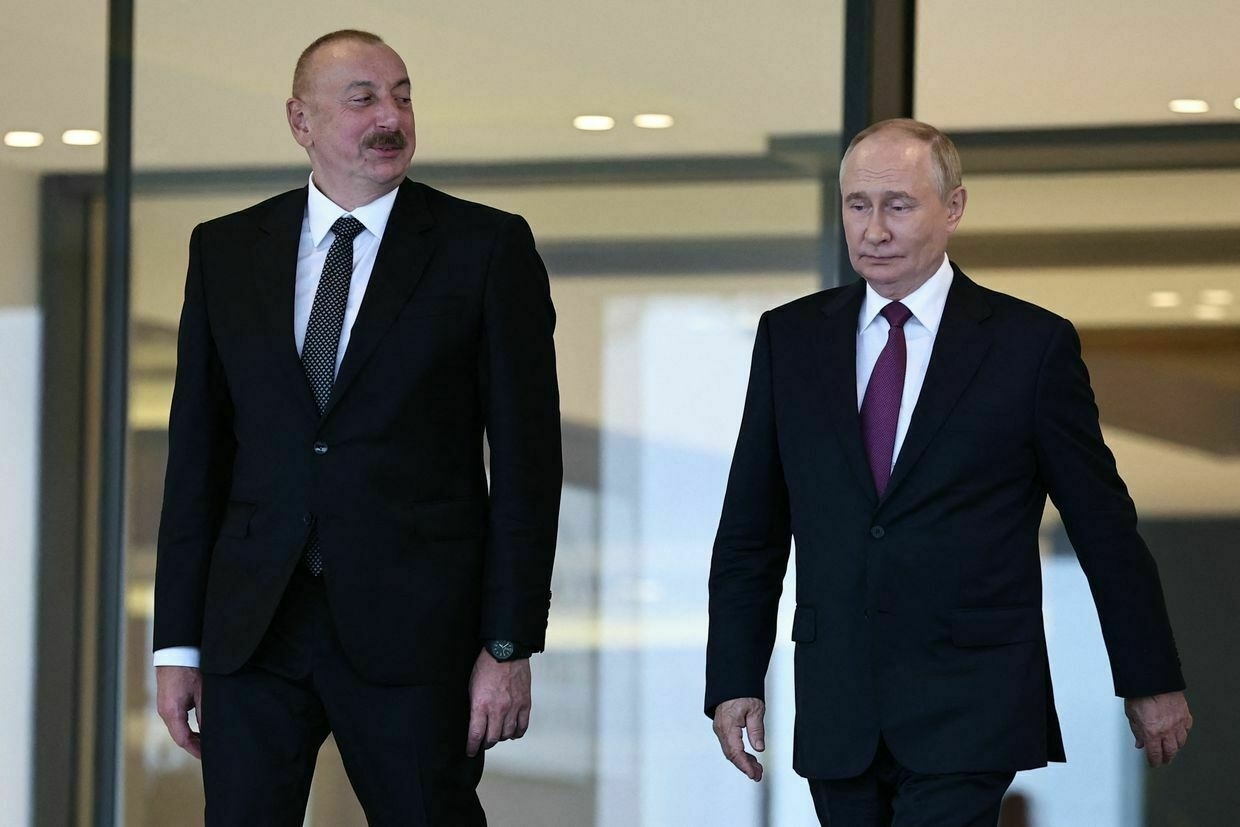
Ukraine denies another Russian claim of Dnipropetrovsk Oblast breakthrough, says small incursion repelled
Russian forces have not succeeded in crossing into Dnipropetrovsk Oblast, Ukraine’s military said on July 2, refuting another Russian claim of a breakthrough into the central-eastern region.
The General Staff of the Armed Forces of Ukraine dismissed Russian claims of territorial gains as disinformation and said a recent small incursion was repelled.
According to the statement, a small Russian reconnaissance group managed to briefly enter the village of Dachne, located on the edge of Dnipropetrovsk Oblast. The group reportedly took photos with a Russian flag, but Ukrainian forces “eliminated them."
Russian troops have intensified efforts to breach the administrative border between Donetsk and Dnipropetrovsk oblasts in eastern Ukraine, but have failed to gain ground despite repeated assaults, the military said.
"(Russian troops) have had no success in achieving this demonstrative goal, no matter how many ‘meat wave assaults’ they launch with small infantry units and sabotage-reconnaissance groups,” the General Staff said in a statement.
Donetsk Oblast, which has been a focal point of Russia’s invasion since 2014 and a major battleground since the full-scale invasion in 2022, borders the more centrally located Dnipropetrovsk Oblast. Russian forces have not entered Dnipropetrovsk Oblast territory in force, although they regularly strike the region with missiles, drones, and aerial bombs.
In a separate incident, two Russian soldiers were captured during a subsequent assault on Dachne and are now in Ukrainian custody, the military said. They were detained by a unit of Ukrainian Marines and added to “Ukraine’s prisoner exchange pool."
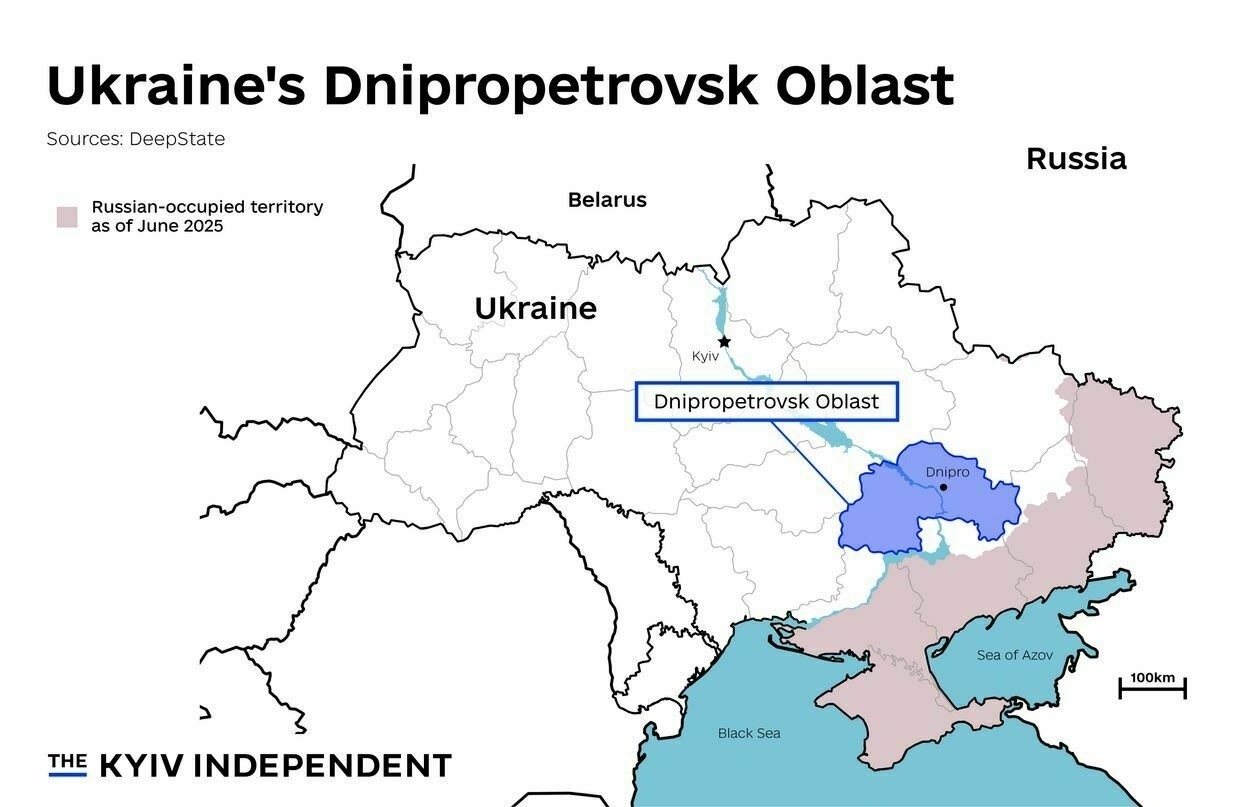
“Therefore, the Russian propaganda about the seizure of the bridgehead in Dnipropetrovsk Oblast is not true. Dachne remains under the control of the Ukrainian Defense Forces,” the statement read.
The new claims echo a similar incident in May when Russian sources circulated a photo purporting to show Russian troops at the border of Dnipropetrovsk Oblast near the village of Novomykolaivka.
At the time, Ukrainian officials, including Dnipropetrovsk Oblast Governor Serhii Lysak, dismissed the photo as fake. The monitoring group DeepState later confirmed that the image had been taken in the village of Troitske in Donetsk Oblast and featured a Ukrainian vehicle abandoned under fire, which Russian forces later used for staged photos.
Russian forces have recently stepped up offensive operations across multiple sectors of the front line. Viktor Tregubov, spokesperson for Ukraine’s Khortytsia group of forces, said on June 16 that Moscow had increased attacks in the Novopavlivka sector.
Tregubov noted that the escalation near Novopavlivka indicates an effort to breach into Dnipropetrovsk Oblast. “But they have failed to succeed,” he said in a televised address.
Kremlin spokesperson Dmitry Peskov told Russian state-controlled media on June 9 that Russian forces were conducting operations in Dnipropetrovsk Oblast as part of efforts to create a so-called “buffer zone” on Ukrainian territory.
These remarks followed Russian President Vladimir Putin’s May 22 statement that Russia was working to establish a “security buffer zone” along the Ukrainian border regions of Kursk, Bryansk, and Belgorod.
Russia's Kupol military plant reportedly halts operations after Ukrainian drone strike
The Kupol plant in Russia's Udmurt Republic ceased operations following a Ukrainian drone attack, independent media outlet Astra reported on June 2, citing emergency service sources.
Located more than 1,300 kilometers (800 miles) from the front line, the plant produces Tor and Osa air defense systems, as well as Harpy-type attack drones. It is under international sanctions as part of Russia's defense-industrial complex.
Two drones hit their intended targets during the strike with one flying through the windows of one workshop, and the second hitting the roof of another, causing an explosion and fire. The resulting blaze led to the collapse of 1,300 square meters of roofing, Astra reported.
Four workshops were destroyed in the first building of the complex, reportedly halting operations in areas responsible for metalworking, microchip soldering, and drone production.
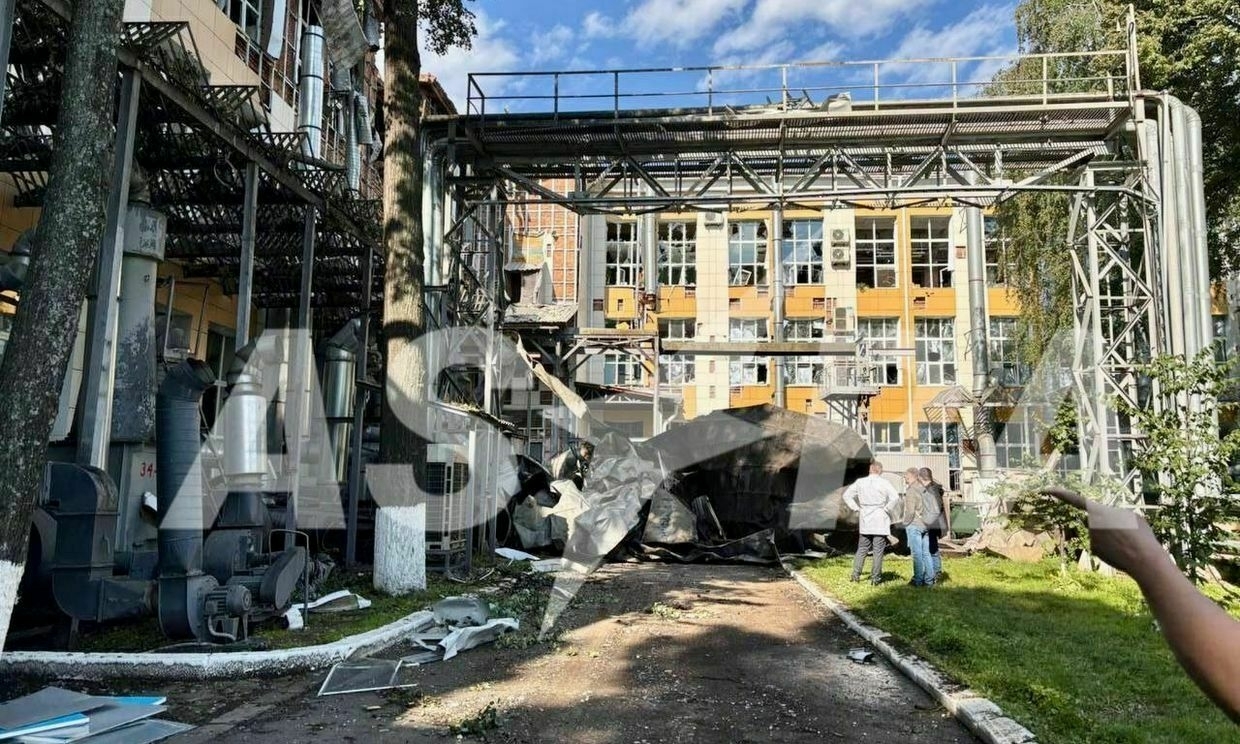
Udmurt Republic Governor Alexander Brechalov said on June 1 that three people were killed and 45 injured in the attack, including 35 hospitalizations and six in serious condition.
Astra earlier reported that no air raid siren was issued in Izhevsk ahead of the attack. Residents claimed to be unable to receive emergency alerts due to persistent mobile internet outages.
Ukraine's General Staff confirmed the strike via its official Telegram channel, framing it as part of Kyiv's campaign to degrade Russia's defense-industrial base far from the front.
The plant was previously targeted in a Ukrainian drone strike on Nov. 17, 2024. That attack damaged equipment used to produce Tor missile systems and radar components.
Izhevsk, the capital of the Udmurt Republic, is known as a center of Russia's arms manufacturing industry and the birthplace of the Kalashnikov rifle.
The latest attack underscores Ukraine's capacity to strike deep into Russian territory.
 The Kyiv IndependentNatalia Yermak
The Kyiv IndependentNatalia Yermak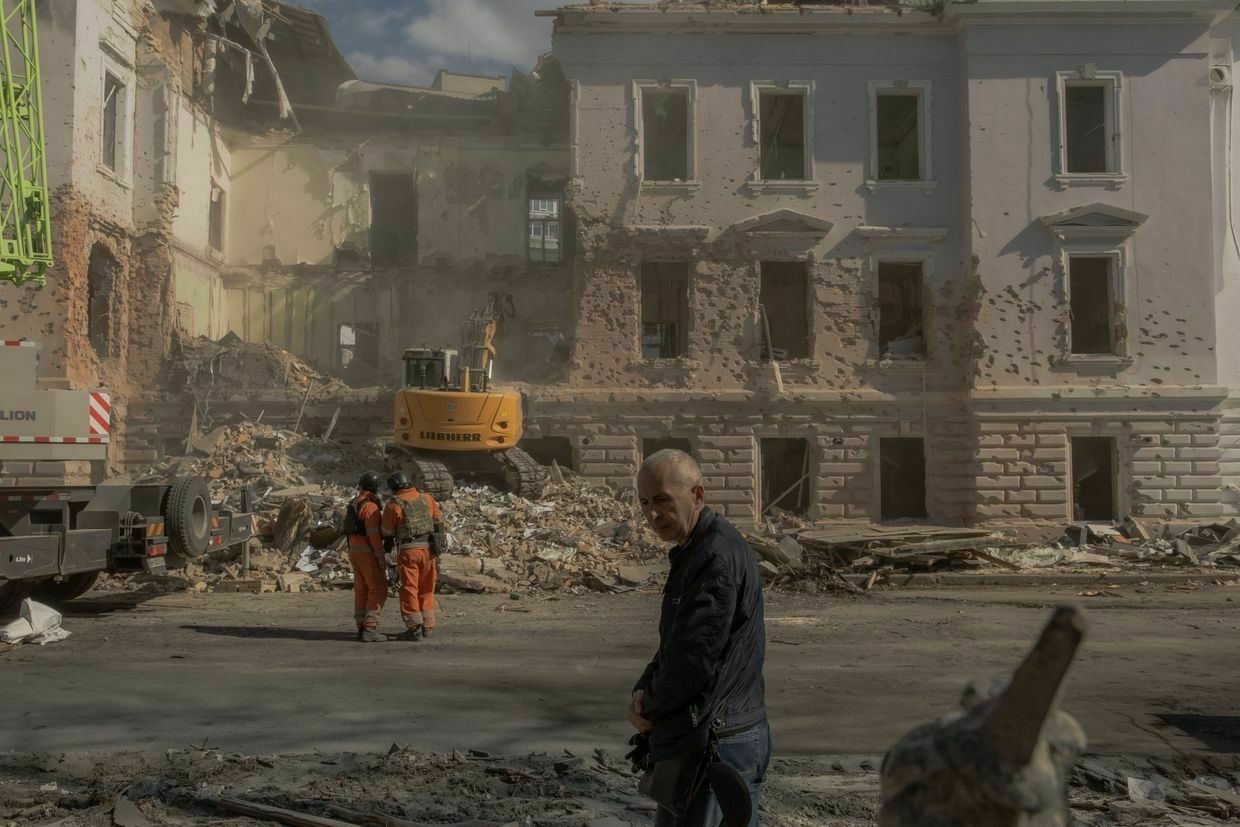
Russia killed at least 273 Ukrainian POWs during full-scale war, prosecutors say
Ukrainian prosecutors have documented cases of Russian forces summarily executing 273 Ukrainian prisoners of war (POWs), the Liga.net news outlet reported, citing a statement from the Prosecutor General's Office.
Kyiv and the UN have raised alarm over the rising number of such cases, saying they point to a systematic policy by Russia to murder Ukrainian captives. Half of the document cases were recorded this year alone.
Seventy-seven criminal cases have been launched in connection with the killings of POWs, while only two people were convicted, and a trial against a third person is ongoing. The statement did not clarify whether the convictions were issued in absentia.
A total of 188 people have been convicted of various war crimes, including 18 captured Russian soldiers and one civilian, who were convicted in person. The rest were convicted in absentia.
Earlier this week, Ombudsman Dmytro Lubinets reported a case of the likely murder of a Ukrainian POW who was apparently tied to a motorcycle by Russian soldiers and dragged along the road.
Ukraine's military intelligence agency (HUR) said in May that it alone had documented more than 150 cases of Ukrainian soldiers being executed after surrendering to Russian forces. Multiple intelligence reports suggest that Russian soldiers have received explicit orders to kill prisoners of war.
The United Nations Independent International Commission of Inquiry on Ukraine confirmed in March growing numbers of incidents in which Russian forces killed or maimed surrendering Ukrainian troops.
A separate Ukrainian investigation is also underway into the killing of around 50 Ukrainian POWs in the Russian-run Olenivka prison in 2022. Kyiv blamed the killings on Russia, saying Moscow's forces deliberately put Azov fighters in a separate building that was later destroyed.
Russia denied responsibility, claiming the explosion was caused by a Ukrainian HIMARS strike — a version UN investigators have rejected.
Although Moscow blocked an independent investigation by denying UN monitors access, Lubinets recently said that an internal UN analysis concluded Russia was to blame.
Note from the author:
Ukraine War Latest is put together by the Kyiv Independent news desk team, who keep you informed 24 hours a day, seven days a week. If you value our work and want to ensure we have the resources to continue, join the Kyiv Independent community.

